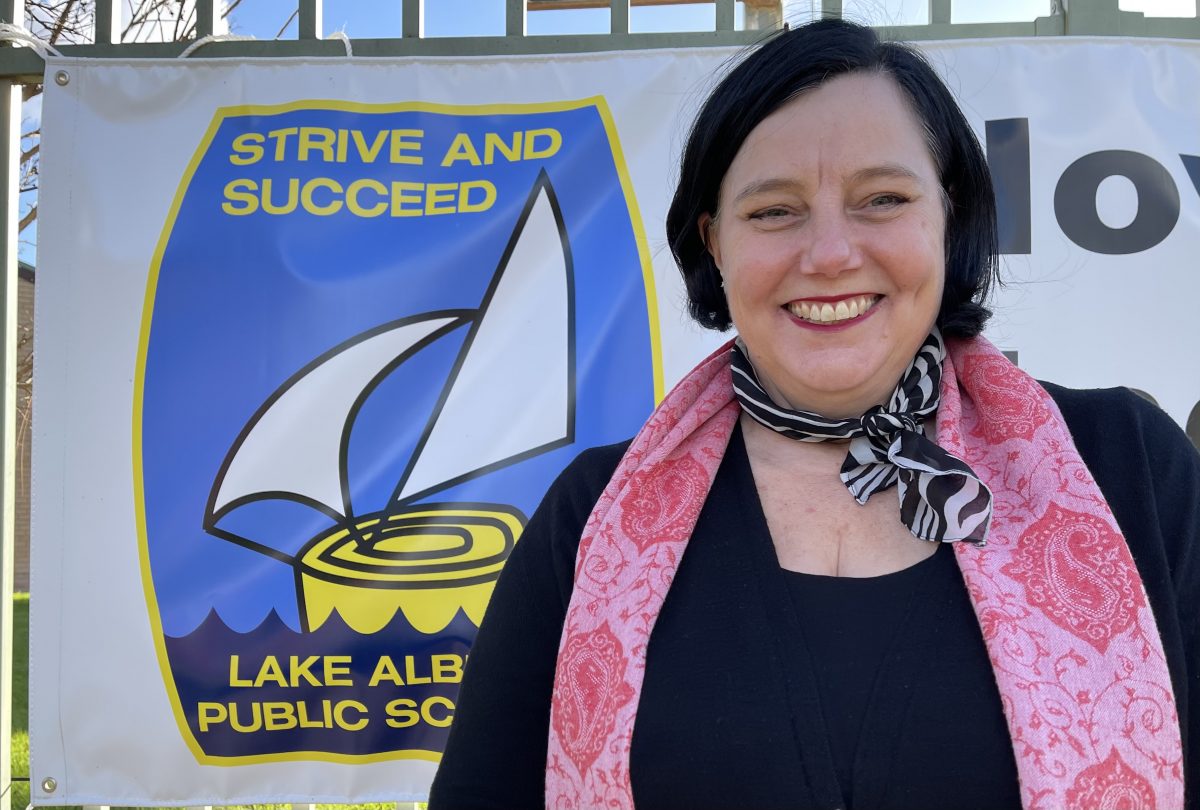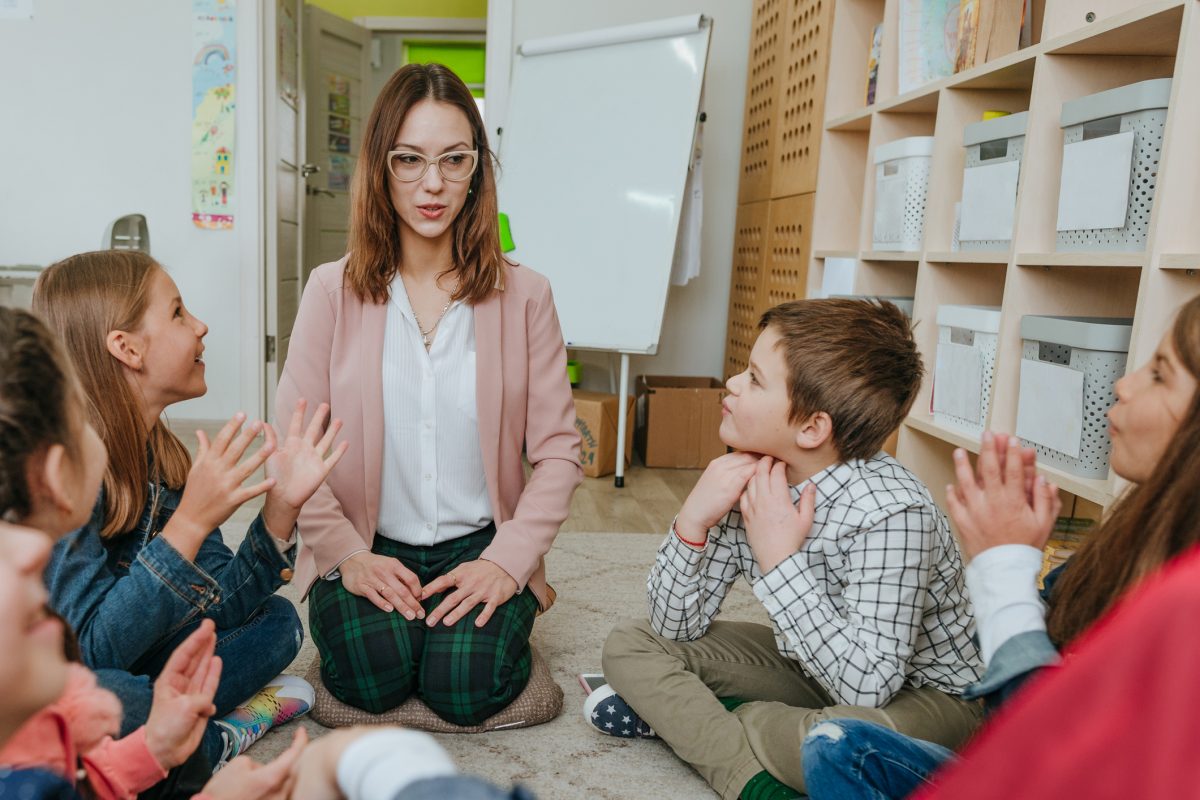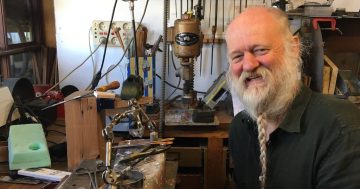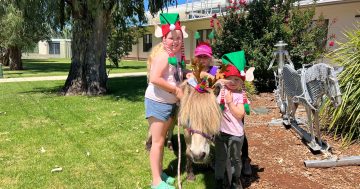
Primary Ethics volunteers like Juanita Golland come from all backgrounds and require no teaching experience. Photo: Supplied.
Juanita Golland is a Murrumbidgee Local Health District online communications officer but, for two days a week, she is teaching Wagga children crucial life lessons.
The mother-of-three is one of 1917 Primary Ethics volunteers delivering philosophical ethics lessons to 36,000 children in NSW public primary schools every week.
She has volunteered at Lake Albert Public School since her family relocated to Wagga from Sydney in 2017 and recently took on the role of ethics coordinator in addition to teaching to recruit and manage other volunteers at the school.
“When I did my training in 2016, ethics in primary schools was still a relatively new concept and only existed in the city,” Juanita said.
The Federation of P&C Associations of NSW and The Ethics Centre lobbied alongside parents for eight years to allow the Primary Ethics program to run in state public schools as an alternative to Special Religious Education (SRE) or Scripture.
NSW Parliament amended the NSW Education Act to give public school students the right to attend philosophical ethics classes in December 2010.
In the classes, children practice and improve critical thinking and ethical reasoning skills to develop a life-long capacity to make well-justified and respectful decisions. Age-appropriate discussions with peers about ethical issues are led impartially by trained volunteers.
“I think everyone should do some sort of volunteer work – you’ve got to find what works for you because it’s something you give your time up for. This works for me on so many levels,” Juanita said.
“Initially I saw this as a great opportunity to work in the schools that my children went to. As a parent it gave me a great insight into what happens when you’re not there, and it let me see the teachers in a different light.
“But it has been a lovely experience watching the children I teach develop and seeing their minds change over time.”

Critical thinking and ethical reasoning skills are coaxed out of students in age-appropriate and impartially-led classes. Photo: File.
Primary Ethics volunteers come from all backgrounds – parents, grandparents, friends and local community members. They do not need any teaching experience to volunteer, as free training and ongoing support are provided.
“I teach one class for 45 minutes and probably do about two hours of prep, and I do that twice a week, so it’s not a huge commitment,” the communications professional said.
Primary Ethics CEO Evan Hannah has a communications and journalism background.
He joined the not-for-profit organisation in 2012 and volunteered for four years before taking the helm.
“Critical thinking and ethical reasoning skills are so desirable and recognised by educators, employers and organisations around the world,” he said.
“They are core 21st century strengths for children to develop.”
Mr Hannah said more than half the student population across hundreds of schools in New South Wales were now opting out of scripture classes. However, at least seven or eight children are required per class to create a ‘community of inquiry’ – a large enough group to promote effective discussion.
“There are close to 300 or 400 regional schools that don’t have high enough enrolment numbers to allow us to deliver the program with the resources we currently have,” Mr Hannah explained.
Last year Primary Ethics created the position of development manager to grow the program in regional areas, where the organisation has also encountered difficulties recruiting sufficient volunteers to meet demand.
“We’re doing a lot, but we are struggling in that respect,” Mr Hannah said.
“That poses a big equity issue – why should these schools have their co-curricular options limited simply because of their distance from Sydney?”
Despite the barriers Primary Ethics faces, online training sessions and ethics classes have still extended the organisation’s reach to regional areas during the pandemic.
“So many volunteers say that this is the best part of their week,” Mr Hannah said.
“They are blown away by the depth of thought the kids come up with. I love that they are so pleasantly surprised by this part of this process.”
Juanita’s experience in Wagga has been no different.
“In those older years they’re really thinking critically and are allowed to say what they think, but always have to justify why they have that opinion,” she said.
“You hear other children say ‘well, I’d like to build on that idea’ or ‘I disagree for this reason’ and the insight that they can give is incredible.
“It’s such a well supported program, and it’s amazing how much you experience. There are challenges but it’s so worthwhile. My advice is to just give it a try.”
Interested in becoming a volunteer or learning more about Primary Ethics? Visit the website.








